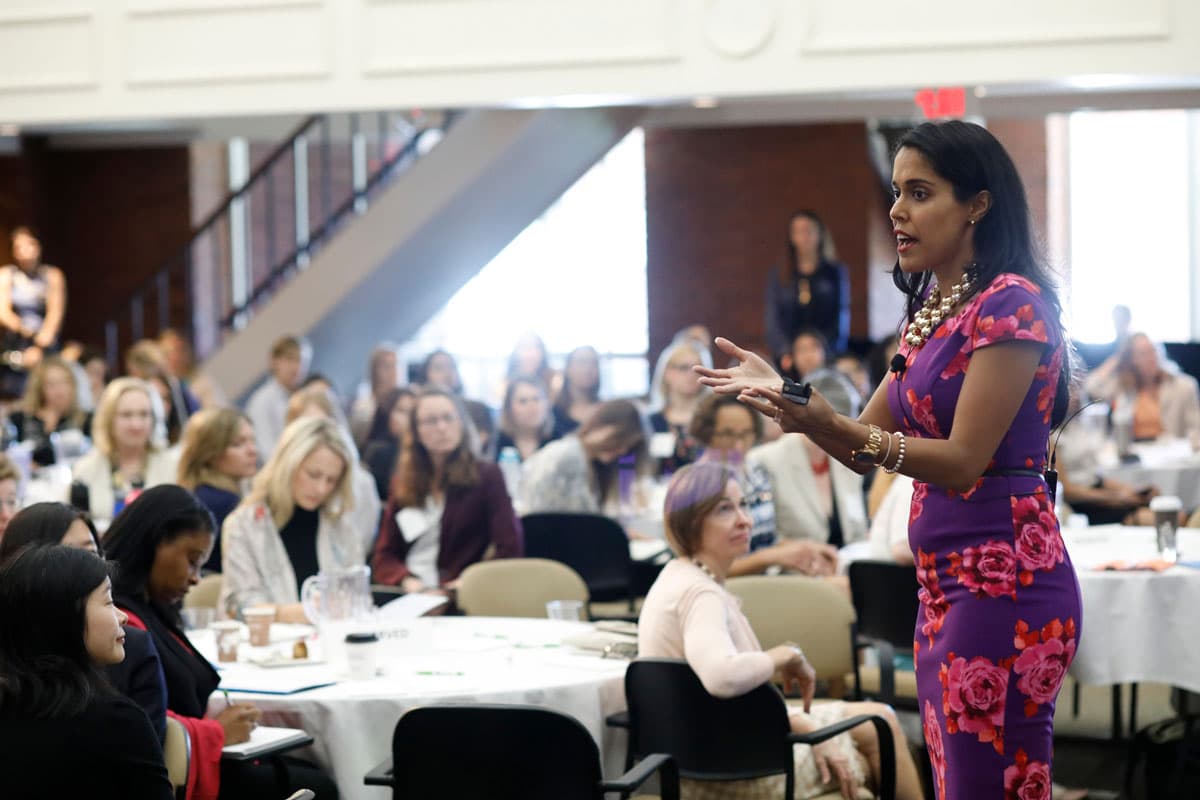
As part of my advisory work with clients, I review a range of client DEI documents and, in particular, I pour over employee engagement survey results. I’m a data-driven person so I’m drawn to survey outcomes, but it’s the comments section that I spend the most time with. As someone who often skips over filling out the comments section herself when doing a survey (bad, I know!), I’m so intrigued by what people will take the time to share.
Lately, I’ve been noticing the comments are filled with women team members speaking to their experiences with sexism in the workplace — everything from sexist jokes to being delegated menial tasks to disrespectful treatment during meetings. To be clear, I’ve been doing DEI work in some form for over 20 years now, so I know that workplace systems and cultures are filled with misogyny. It’s more that I can’t help but wonder “are we actually still here?!?”.
It underscores why DEI initiatives are so important for advancing women’s equity (for cisgender and trans women), empowering women professionals and addressing the unique obstacles women face in the workplace, including ones related to our intersecting identities.
It also highlights why we must keep fighting the fight for gender inclusion in the workplace. Here are four practices you can put into action to advance gender equity at work.
Advocate for Women
We know research shows that only 4% of White women and 1% of Women of Color have sponsors at work. (Check out my research in Sponsor Effect: Canada to learn more.) It isn’t enough to merely hire women for your teams — we must sponsor and advocate for women in order to provide meaningful support for career advancement.
Create a Culture of Authenticity & Psychological Safety
For women, and especially Women of Color, it can be incredibly challenging to bring our Authentic Selves to the workplace, where we’re likely to face gender based biases, micro-inequities and more. But we know that when team members feel safe to be authentic at work, this leads to higher engagement, increased performance and greater workplace satisfaction. If we want to truly empower women professionals, we must create cultures where psychological safety, belonging and authenticity is inherent and encouraged.
Address Gender-Based Challenges as HR Challenges
Prior to the global pandemic, women were facing disproportionate challenges in their professional and personal lives due to gender inequity. The gendered impacts of Covid-19 have further exacerbated this situation for women professionals by leading to greater economic stress, an increased burden of caregiving and housework, an increased risk of gender-based violence and more. As your organizations begin creating post-pandemic policies around hybrid work, talent management and more, we must consider these gender-based challenges a top priority to ensure that workplace policies serve every team member.
Invest in Women
Organizations must provide opportunities to dig deeper into unconscious biases and allyship connected to gender inequities, in addition to providing women professionals with opportunities for development and growth. This can mean creating a formal sponsorship program or paying for an empowerment course (my 30-Day Empowerment Masterclass is a great place to start!), to name a few examples.
These are just a few key areas that organizations can be working on. There’s much more, I know! My point is that we must double down on creating targeted programming for women so that we can reinforce gender equity in all we do — and so that I can stop being stunned when I read comment sections in employee surveys!
Sign up for bci’s mailing list to get the latest diversity, equity and inclusion insights right to your inbox every month.
Komal is bci’s Senior DEI Consultant and Mental Health Expert-in-Residence and an accomplished DEI facilitator, coach, and strategist. Komal has over 20 years of experience in providing strategic and advisory guidance and program development across a range of sectors, with a particular concentration in mental health and racial inclusion. Komal is also the founder of Insayva Inc., a social enterprise focused on providing accessible DEI and health equity support to charities and non-profit organizations.
Komal has extensive experience in creating and delivering programming in a range of leadership and DEI areas, including mental health inclusion, psychological safety, empathy, relationship repair, allyship, and cultural competence. She is passionate about driving transformational change in workplaces and has worked closely with bci clients – corporations, professional service firms, health care providers, and educational institutions – to embed cultures of inclusion within their organizations.
Komal has provided one-on-one inclusion coaching to hundreds of senior leaders and brings a unique approach that is informed by her background as a therapist. She is able to expertly handle sensitive conversations and situations and works with leaders to develop the knowledge and skills necessary to advance racial/ethnocultural, gender, and mental health-related equity across teams and organizations. Komal also offers a performance coaching program designed specifically for BIPOC leaders. This program aims to help BIPOC leaders harness their place, position, and identity to thrive in the workplace and beyond. Komal is a qualified administrator of the Intercultural Development Inventory (IDI).
As bci’s Mental Health Expert-in-Residence, Komal offers tremendous expertise around workplace mental health. As a doctoral trained mental health clinician, certified health executive, and registered social worker, Komal has assisted organizations looking to advance employee mental health inclusion and well-being through offering programming on inclusive dialogue, anti-stigma, burnout prevention, psychological safety, resilience, and self-care. Komal is committed to advancing mental health and wellness across the life course; she currently serves on the board of the Alzheimer’s Society of Ontario and previously served on the boards of Children’s Mental Health Ontario and the YMCA of Greater Toronto.
When Komal is not working, you’ll find her painting, cooking, or snuggling with her cats.